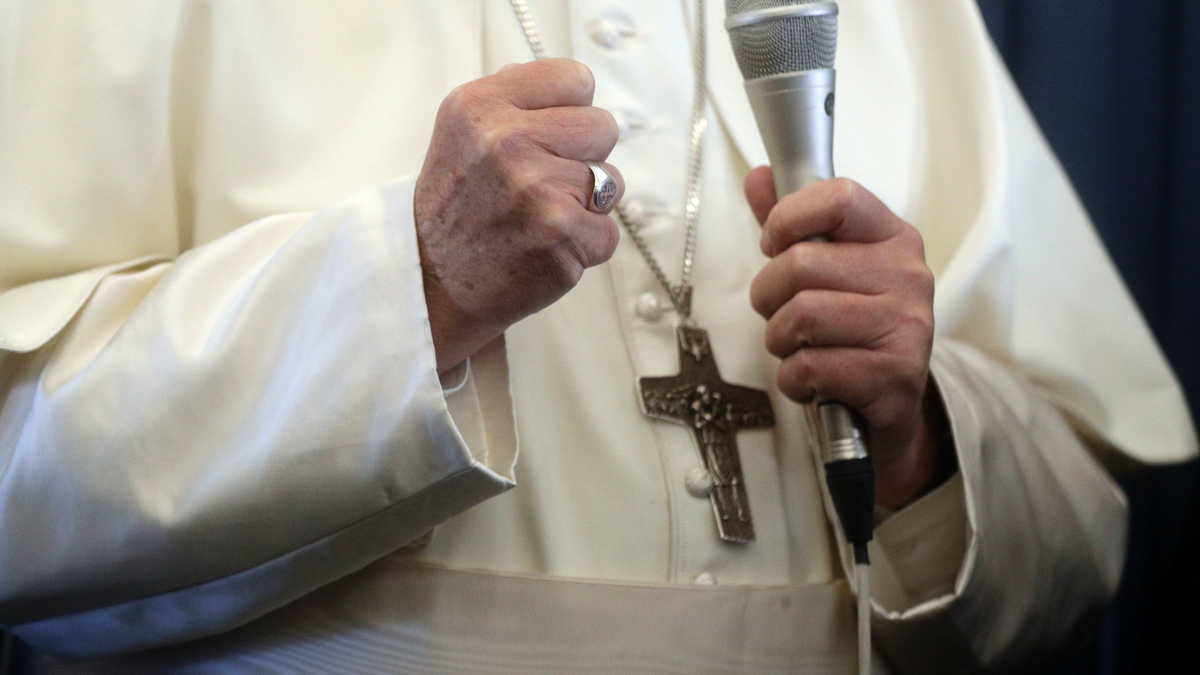
ROME – An Italian journalist who says he helped a former Vatican diplomat pen his bombshell allegation of sex abuse cover-up against Pope Francis says he persuaded the archbishop to go public after the U.S. church was thrown into turmoil by sex abuse revelations in the Pennsylvania grand jury report.
Marco Tosatti said he helped Archbishop Carlo Maria Vigano write, rewrite and edit his 11-page testimony, saying the two sat side-by-side at a wooden table in Tosatti's living room for three hours on Aug. 22.
Tosatti, a leading conservative critic of Francis, told The Associated Press that Vigano had called him a few weeks ago out of the blue asking to meet, and then proceeded to tell him the information that became the basis of the testimony.
Vigano's document alleges that Francis knew of ex-Cardinal Theodore McCarrick's sexual misconduct starting in 2013 but rehabilitated him from sanctions that Pope Benedict XVI had imposed. The claims have shaken Francis' five-year papacy.
Vigano called for Francis to resign over what he said was complicity in covering-up McCarrick's crimes. There is ample evidence, however, that the Vatican under Benedict and St. John Paul II also covered up that information, and that any sanctions Benedict imposed were never enforced.
Vigano has kept largely quiet since the bombshell testimony Sunday, and his whereabouts are unknown. As a result, Tosatti's reconstruction provides the only insight into how the document came about.
Tosatti, a longtime correspondent for Italian daily La Stampa but who now writes largely for more conservative blogs, said after their initial meeting a few weeks ago, Vigano wasn't prepared to go public.
But Tosatti said he called him after the Pennsylvania grand jury report published Aug. 15 alleged some 300 priests in six Pennsylvania dioceses abused more than 1,000 children over the past 70 years, and that a sequence of bishops had covered it up.
Tosatti said he told Vigano: "I think that if you want to say something, now is the moment, because everything is going upside-down in the United States. He said 'OK.'"
The two then met at Tosatti's Rome apartment.
"He had prepared some kind of a draft of a document and he sat here by my side," Tosatti told the AP from behind his desk, pointing to the wooden chair to his right. "I told him that we had to work on it really because it was not in a journalistic style."
Tosatti said he persuaded Vigano to cut claims that couldn't be substantiated or documented "because it had to be absolutely water-proof." They worked for three hours.
Tosatti said he was well aware of the implications of the document and what it took for a Holy See diplomat to reveal secrets he had kept for years.
"They are brought up to die silent," Tosatti said of Holy See diplomats. "So what he was doing, what he was going to do, was something absolutely against his nature."
But he said Vigano felt compelled to publish out of a sense of duty to the Catholic Church and to clear his conscience.
"He enjoys a good health but 77 is an age where you start preparing yourself ... he couldn't have a clear conscience unless he spoke," Tosatti said.
Document in hand, Tosatti then set out to find publications willing to publish it in its entirety: the small Italian daily La Verita, the English-language National Catholic Register and LifeSiteNews, and the Spanish online site InfoVaticana.
All are ultra-conservative media that have been highly critical of Francis' mercy-over-morals papacy.
The English and Spanish publications translated the Italian document and all agreed on a Sunday morning embargo, coinciding with the second and final day of Francis' trip to Ireland, where the Catholic church's sex abuse and cover-up scandal dominated his trip.
Tosatti said Vigano didn't tell him where he was going after the article came out, knowing that the world's media would be clamoring to speak with him.
As Tosatti accompanied Vigano to his door, he bent down to kiss Vigano's ring — a sign of respect for Catholic bishops.
"He tried to say 'No.' I told him 'It's not for you, it's for the role that you (play) that I do it," Tosatti said. "He didn't say anything. He went away, but he was crying."
